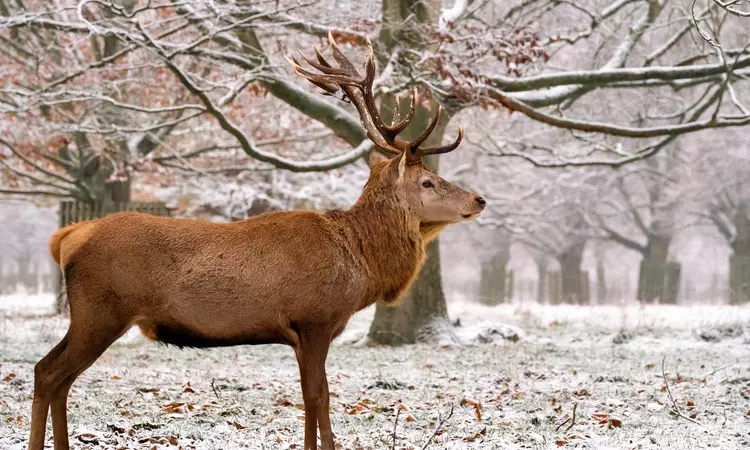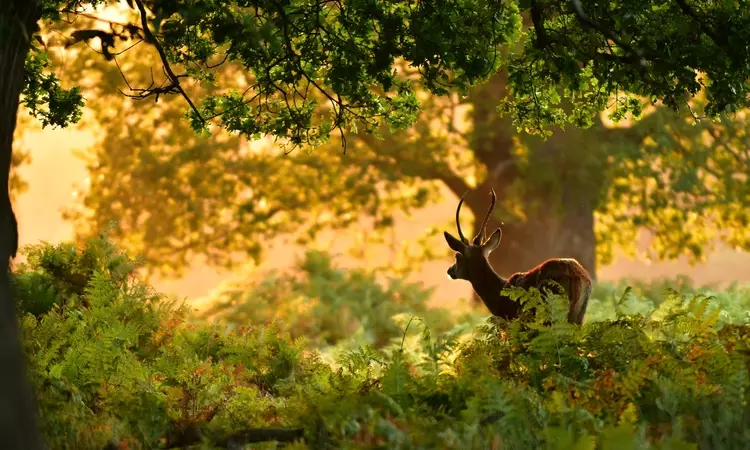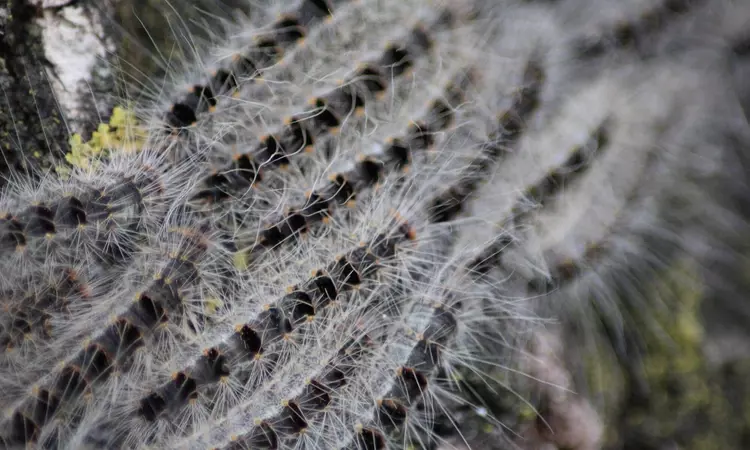
Wildlife in Bushy Park
Key information
Historic herds of free-roaming deer. Herons and kingfishers fishing in woodland pools. Harebells in springtime. Mistletoe at Christmas. A wildlife haven on the outskirts of London.
Bushy Park – a unique mix of natural habitats
At just over 1,000 acres, Bushy Park is the second largest of London’s Royal Parks. It has a rich range of habitats – from woodland, wetland and ancient trees to acid grassland – a rare habitat and a conservation priority. Bushy Park is a Site of Special Scientific Interest. Its name dates back to the 17th century, when hawthorn bushes were planted to protect the oak tree saplings destined to provide timber for the navy.
Acid grassland is a fragile environment of critical importance. Bushy Park teems with grasshoppers, spiders, butterflies and hedgehogs, and is home to many species of beetle, including the deadwood-loving stag beetle. Many native wildflowers and fine grasses thrive in acid grassland, including sheep's sorrel, mouse-eared hawkweed, and heath bedstraw. In spring, you’ll see delicate harebells.
The park’s distinctive, grassy tussocks are yellow meadow ant anthills – a key indicator species associated with acid grassland. Some of these anthills are over 200 years old, so please be careful not to tread on them.
In the Woodland Gardens, you may hear the drumming of great spotted woodpeckers. Starlings, jackdaws and grey wagtails also nest or forage here.
And there’s plenty going on below the waterline Bushy Park has many species of fish, from chub, bream and roach, to eels in the Longford River.
The Bushy Park wild deer
The 320 strong herd of wild red and fallow deer roam freely across the park – an iconic sight. Their grazing has helped shape the landscape and helps maintain the acid grassland habitat. Take extra care and keep at least 50m away from the deer.
Because of the sheer variety and abundance of wildlife, you can return to Bushy Park over and over again – and still discover something new. From a pair of rutting stags, to a glimpse of a newt or grass snake, or a grey heron with a fish in its beak.
Wildlife and parklife – a delicate balancing act
The Royal Parks are unique urban parklands, where people and wildlife can come together. We have a responsibility to balance the best interests of people, animals, birds, plants and the planet for future generations.
Discover
-

Deer in Bushy Park
Bushy Park is a deer park. Red and Fallow Deer still roam freely throughout the park, just as they did when Henry VIII used to hunt here.
-

Deer safety advice
The deer in Richmond and Bushy Park are wild and can be unpredictable. Read our safety advice for park visitors including photographers and dog walkers.
-

Tick bites & Lyme disease
Woodlands and parks with deer, such as Richmond Park and Bushy Park, can attract ticks. Familiarise yourself with the symptoms and prevention advice.
-

Oak Processionary Moth
Important information on Oak Processionary Moth and what you should do if you find the caterpillars or their nests.